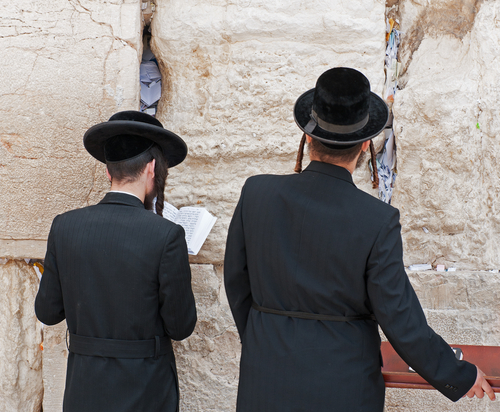JERUSALEM (RNS) Israel’s parliament passed a controversial law Wednesday (March 12) requiring a significant number of ultra-Orthodox, or haredi, young men to serve in the military or perform civilian national service starting in 2017.
“This is a historic, important bill,” said Ayelet Shaked, who headed the Knesset, or parliament, committee that prepared the bill. “For 65 years there was an exemption for all yeshiva students and the change the coalition made is proportionate and gradual and correct.”
The Yesh Atid party, which was voted into the Knesset on a platform promising “an equal sharing of the national burden,” spearheaded the landmark legislation.
The yeshiva student exemptions have created a deep rift in Israel, where nearly all men and women are drafted for up to three years of military service. Almost all of Israel’s 1.7 million Arab citizens are exempt from the draft.
The law’s advocates view military service as a steppingstone toward the integration of the haredi community into Israeli society. The community’s norms, which are based on strict adherence to Jewish law, encourage large families and Torah study over secular skills and employment. The result: Most haredi families are poor, with many dependent on public assistance.
Haredi leaders maintain that full-time Torah study and prayer are vital contributions to Israel’s Jewish well-being and that their sacrifices are unappreciated.
The draft law codifies a 2012 High Court ruling that invalidated the long-standing military exemption for draft-age ultra-Orthodox men enrolled full time in yeshivas. Haredi draft dodgers will be subject to the same criminal sanctions already imposed on other draft dodgers.
Despite the court ruling, the government had repeatedly delayed the yeshiva students’ conscription, fearing a political backlash from the country’s religious parties and their constituents, who staged a huge demonstration against the law in Jerusalem and a smaller one in Manhattan recently.
The law falls short of conscripting all yeshiva students. More than 1,000 students deemed especially gifted will be permitted to continue their yeshiva studies, while 2,000 will be required to perform civilian national service.
The delay until 2017 means all 30,000 yeshiva students who are now of draft age will receive an immediate service exemption and be permitted to enter the workplace if they wish. An additional 20,000 students currently 18 to 22 years old will receive an exemption at age 24 provided they stay in yeshiva until then.
Many of the law’s initial supporters are angered by these exemptions.
“This is a clear example of a law designed to make headlines and promote Facebook posts, but will not benefit the public,” charged Uri Regev, CEO of Hiddush, an organization that supports equality in Israeli society. “It will not result in drafting yeshiva students, but instead, hands them large-scale exemptions.”
Meanwhile, haredi leaders instructed community members to ignore their draft notices when they arrive in 2016. They also vowed to take political revenge on Prime Minister Benjamin Netanyahu and his coalition.
Responding to the vote, Moshe Gafni, a haredi Knesset member, said: “Israel today lost the right to call itself a Jewish or a democratic nation. The haredi community will not forget this, and it will not forgive Netanyahu and his partners for trampling on the delicate fabric that binds the different communities in Israel.”
Others predicted the law will heal a rift in Israeli society.
Speaking before the Knesset, Science and Technology Minister Yaakov Peri, the parliamentarian who headed the committee that drafted the bill, predicted that “for the first time, an issue at the heart of the conflict of Israeli society will be solved. Dramatic change will come.”
YS/MG END CHABIN






